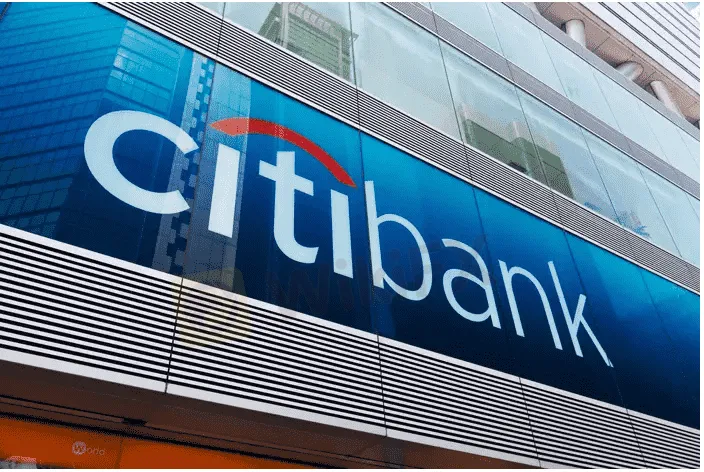简体中文
繁體中文
English
Pусский
日本語
ภาษาไทย
Tiếng Việt
Bahasa Indonesia
Español
हिन्दी
Filippiiniläinen
Français
Deutsch
Português
Türkçe
한국어
العربية
Citibank & Swiss Company METACO to Develop Institutional Crypto Custody
Abstract:This partnership will further Citibank toward developing and piloting digital asset custody capabilities using METACO’s technology.

Citibank will be leveraging METACOs digital asset custody and orchestration platform.
Citi Securities Services already has over $27 trillion worth of AUM.
The global crypto market cap is stuck under $900 billion.
The growth of the crypto market has been significantly successful, but it is yet to reach the mainstream audience entirely. Citibank is ensuring that happens using its reach, and the most recent partnership is another step in that direction.
Citibank X METACO
The global bank announced in a press release its partnership with the Switzerland-based technology company METACO to develop Institutional Digital Asset Custody potential for its users.
The seven-year-old Swiss company‘s bank-grade digital asset custody and orchestration platform Harmonize will be integrated into Citi’s existing infrastructure.
This will allow Citi to develop and pilot digital asset custody capabilities and also use its expansive custody network to enable clients to store and settle digital assets.
Commenting on this partnership, the Global Head of Securities Services at Citi, Okan Pekin, said,
“We are witnessing the increasing digitization of traditional investment assets along with new native digital assets. We are innovating and developing new capabilities to support digital asset classes that are becoming increasingly relevant to our clients.”
Citi Securities Services already has over $27 trillion worth of assets under its custody, administration, and trust. At the same time, METACO has been an important figure in several key implementations, including FINMA, BaFin, FCA, Banco de España, and MAS-regulated institutions.
The Crypto Market Takes a Dip
While the partnership is beneficial to both companies, the decision came at a time when the entire crypto market has been in an iffy spot.
After losing more than $435 billion this month, the crypto market cap fell under $1 trillion and is currently at $879 billion.

Although mixed signals regarding recovery have been visible for a while now, the volatility visible on-chain makes it difficult for the market to stick to one path.
Thus when the market could reclaim the $1 trillion is unknown, but investors still happen to remain hopeful.

Disclaimer:
The views in this article only represent the author's personal views, and do not constitute investment advice on this platform. This platform does not guarantee the accuracy, completeness and timeliness of the information in the article, and will not be liable for any loss caused by the use of or reliance on the information in the article.
Read more

Top 10 Trading Indicators Every Forex Trader Should Know
Master the top 10 Forex trading indicators to analyze real-time Forex quotes, trends, and market signals. Learn strategies to boost accuracy and avoid mistakes.

Geopolitical Events: What They Are & Their Impact?
You've heard many times that geopolitical events have a significant impact on the Forex market. But do you know what geopolitical events are and how they affect the FX market? Let us learn about it today.

Why Do You Feel Scared During Trade Execution?
Trade execution is a pivotal moment for traders. It is when analysis turns into action, and potential profits or losses become reality. However, for many traders, this moment is accompanied by fear. Why does this happen, and how can you address it?

WikiEXPO Global Expert Interview: Simone Martin—— Exploring Financial Regulation Change
In the midst of financial innovation and regulation, WikiGlobal, the organizer of WikiEXPO, stays abreast of industry trends and conducts a series of insightful and distinctive interviews on pivotal topics. We are delighted to have the privilege of inviting Simone Martin for an in-depth conversation this time.
WikiFX Broker
Latest News
Geopolitical Events: What They Are & Their Impact?
Volkswagen agrees deal to avoid Germany plant closures
Top 10 Trading Indicators Every Forex Trader Should Know
WikiEXPO Global Expert Interview: Simone Martin—— Exploring Financial Regulation Change
TradingView Launches Liquidity Analysis Tool DEX Screener
MultiBank Group Wins Big at Traders Fair Hong Kong 2024
'Young investors make investment decisions impulsively to keep up with current trends' FCA Reveals
Why Do You Feel Scared During Trade Execution?
CySEC Settles Compliance Case with Fxview Operator Charlgate Ltd
Malaysian Influencer Detained in Taiwan Over Alleged Role in Fraud Scheme
Currency Calculator


